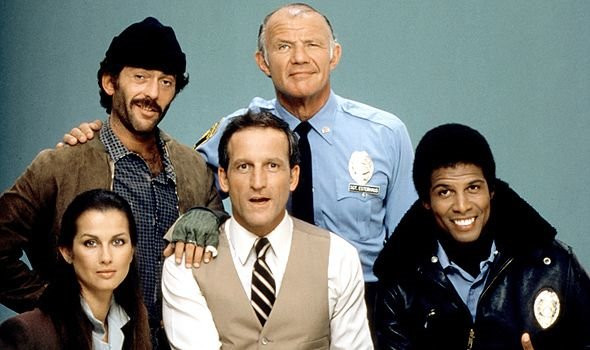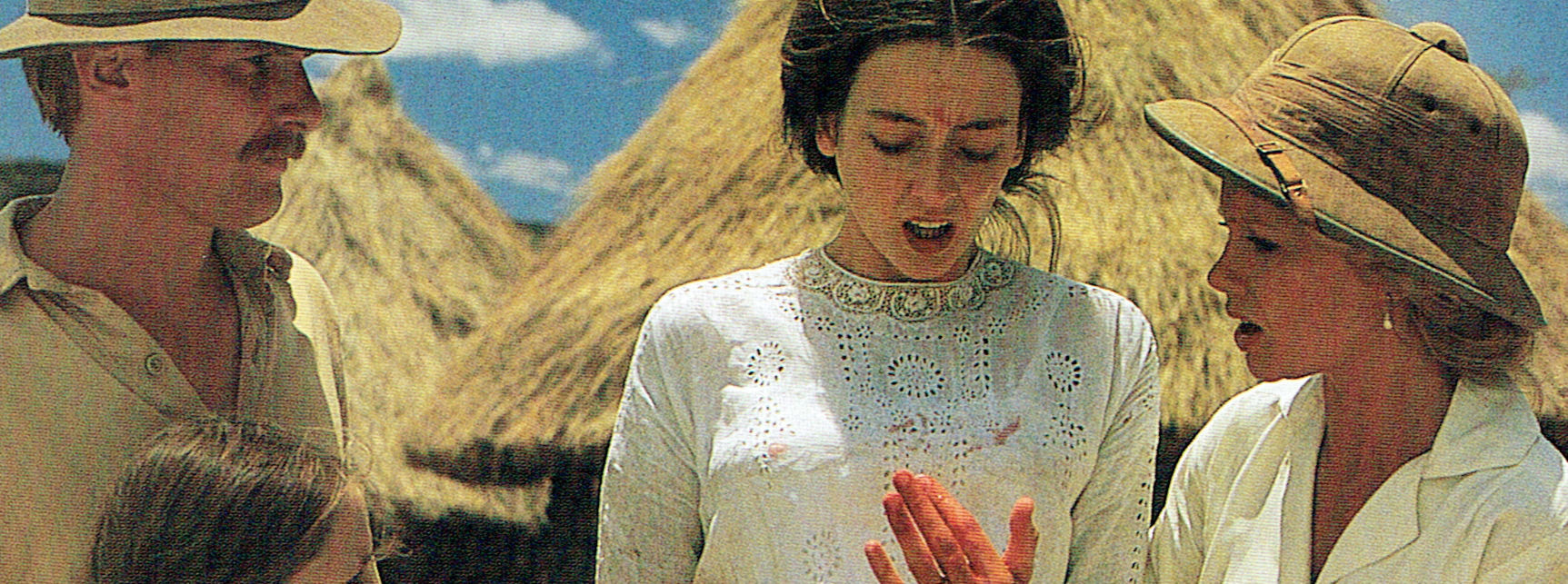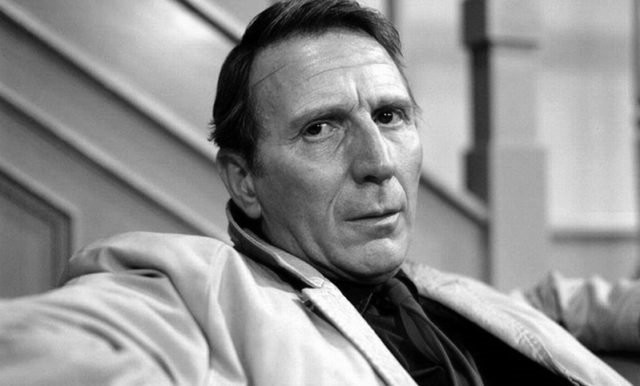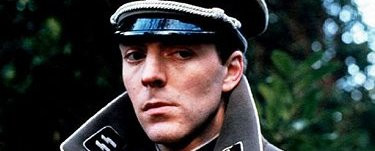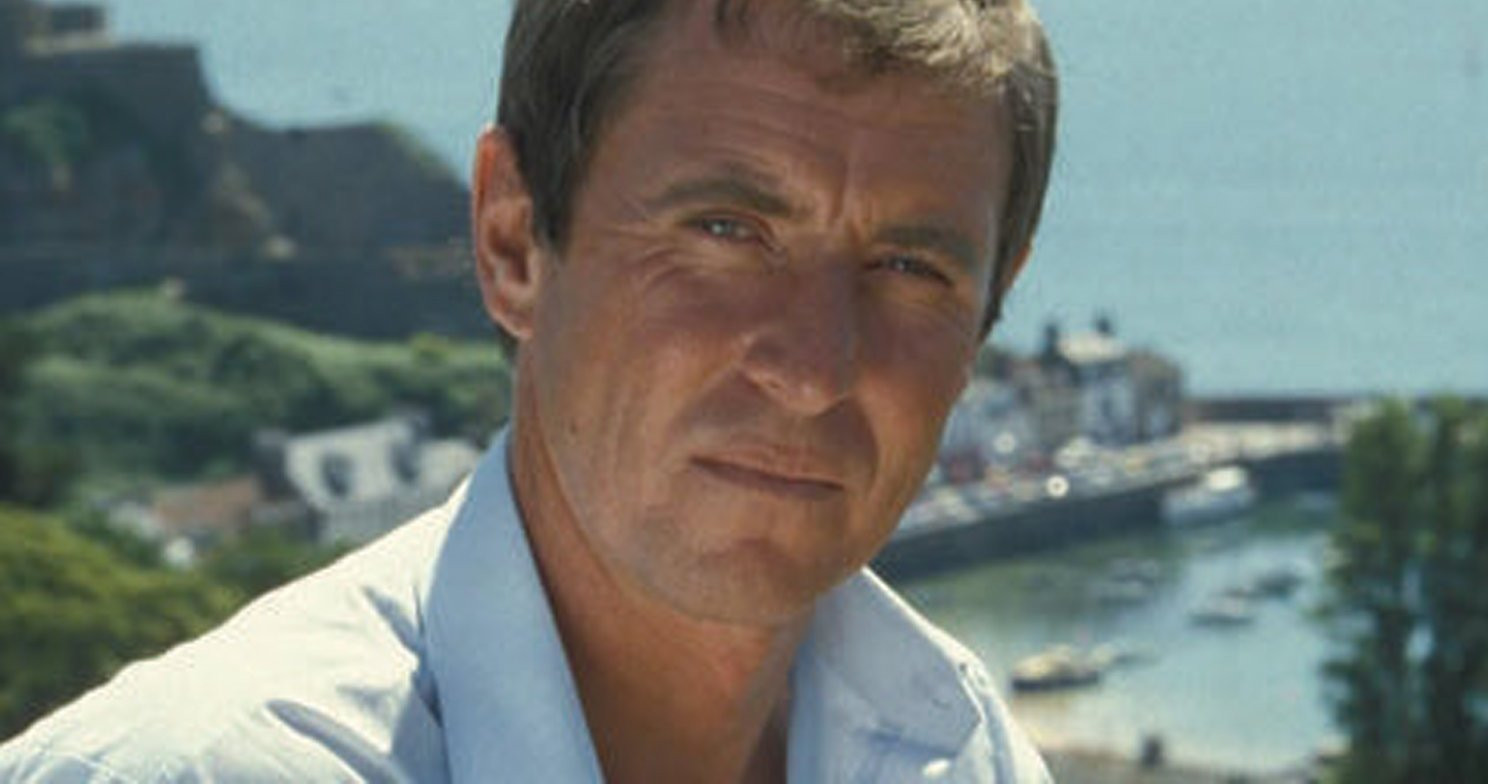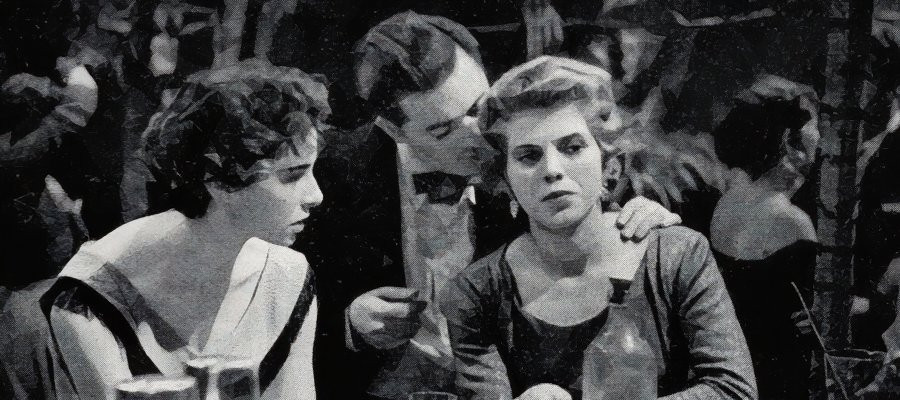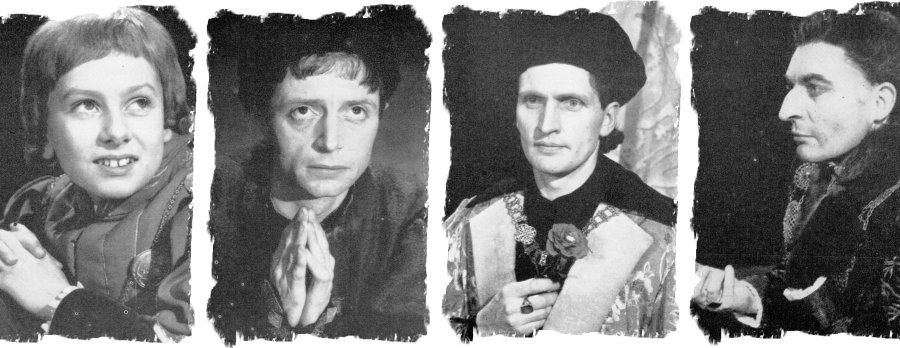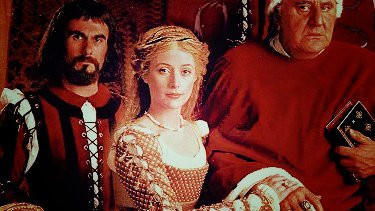
The Borgias
1981 - United Kingdom'The name of The Borgias' wrote Henry Fenwick, in a 1982 issue of the Radio Times, 'probably brings no more than a hazy image of violent crimes, subtle poisons, power, corruption, incest, (and) has, in the foreground, a beautiful, sinister and dangerous woman -Lucrezia Borgia. The archetypal poisoner, the wicked woman. That was the image Mark Shivas confesses drew him to the subject of the Borgia family' and was the inspiration for a lavish ten-part BBC costume drama starring Italian actor Adolfo Celi as Rodrigo Borgia, father of seven illegitimate offspring, the most famous of whom were his son Cesare Borgia (the basis of Machiavelli's ‘The Prince’) and daughter Lucrezia.
The facts surrounding the Borgias have always been clouded by rumour, propaganda and abuse although many feel that history has not been altogether completely accurate or particularly kind to them partly perhaps because they were Spanish and in a position of importance in Italy. Rodrigo had become Vice-chancellor of the Church at the age of 28, appointed by his uncle, Pope Calixtus III. Nepotistic appointments of this type were characteristic of the age and the position made him an extremely wealthy man. On the death of Pope Innocent VIII there were three candidates for the holy seat and while there was never substantive proof of simony (the ecclesiastical crime of paying for offices or positions in the hierarchy of a church), the rumour was that Rodrigo Borgia succeeded in buying the largest number of votes. Nevertheless, he was elected and assumed the name of Alexander VI.
But Rodrigo was surrounded by both treacherous allies and outright enemies. Ferdinand I, King of Naples, allied himself with Florence, Milan, and Venice. He appealed to Spain for help but Spain turned him down anxious to stay on good terms with the papacy in order to obtain the title to the newly discovered continent of America. Actor Alfred Burke, who played the role of Giulliano della Rovere, an enemy of the Borgias who was one of the other two cardinals who lost out on the papacy to Rodrigo, observed; 'They were all gangsters in their way. One has to get rid of the idea of a churchman; one has to see them as political figures. They all knew they were on the make; it was no secret-like big business or grand crime today. In crude terms it was a matter of "Whatever I do, I have to get the better of you".'
It was not long before Rodrigo began endowing his own relatives at the church's expense. Cesare, while a youth of seventeen and a student at Pisa, was made Archbishop of Valencia. Oliver Cotton who played him in the series said; 'the obvious comparison is with something like the Mafia; a very powerful, totally nepotistic family group. Family emotions and family relationships were very important-but so they were with most Italian families.' Perhaps so, but no other Italian family wielded as much power as the Borgias. And while they lived in unparalleled splendour the condition of Rome itself was deplorable. The city swarmed with Spanish adventurers, assassins and prostitutes; murder and robbery were committed with impunity and all the while Alexander continued to indulge himself in orgies culminating in the debaucherous Banquet of Chestnuts of 1501. He also arranged great marriages for his children. Lucrezia (played by Anne Louise Lambert) married Giovanni Sforza, Lord of Pesaro, the ceremony being celebrated at the Vatican Palace in grand magnificence. The general outlook in Italy was one of desperation and the country was threatened with foreign invasion from all quarters.
It was this tale of nepotism, corruption, debauchery, decadence and a shifting of alliances that dramatists John Prebble and Ken Taylor were employed to turn into a ten part series. One of the first problems they had was exactly what to leave out. They felt that there were too many characters who were plotting and counter-plotting and worried that audiences would have problems remembering so many Italian names! 'We had to cut down on the characters', said Prebble at that time, "and we found that history made the choices for us. The Orsini family, who played the principal role against the Borgias, also threw up the most interesting characters, the most relentless in their enmity and also the most eager to compromise when it suited them."
In splitting the series into five episodes each the writers also tried to dispel some of the untruths that they felt history had long since recorded as fact. 'The first thing to get rid of was the myth that Lucrezia was a poisoner.' said Prebble. 'That was started, I believe, by Rafael Sabatini and simply isn't true.' Ken Taylor, who admitted a liking for wicked women, said that he was disappointed when he discovered that she was 'almost entirely a victim.'
The subject seemed ripe for a BBC costume drama and with such successes as The Six Wives of Henry VIII, Elizabeth R and I, Claudius behind them the Corporation must have had high hopes for another viewer and critical success.
Adolfo Celi had been asked to play Rodrigo before in a film that never materialised and was acting in Machiavelli's play 'Mandragora' when Mark Shivas approached him. Celi appeared in over 100 movies, specializing in international villains. His most famous role was as Emilio Largo in the 1965 James Bond movie 'Thunderball.' Celi was fluent in several languages, but had a thick Sicilian accent, which required his voice to be dubbed when appearing in an English language film. (Robert Rietti provided his voice in 'Thunderball'). But for this series it was decided that his own voice should be heard. This was the first mistake. Celi's accent made much of his dialogue unintelligible and hard to follow and this was further exacerbated by the long-winded explanatory dialogue he was given.
The series was immediately derided by both critics and audiences and likened more to Up Pompeii than I, Claudius. The scripts were also accused of being weak and other actors also came in for heavy criticism being accused of 'theatrical overacting' and being totally out of their depth. Scenes that should have shocked such as a scene where the actors had to crawl half-naked across the floor picking up chestnuts with their mouths were rendered laughable and on par with the worst type of 'Carry On' movie. In 1982 even the Radio Times parodied the series with a cover of the Not The Nine O’clock News team who were pictured in the same pose as the original actors a year earlier only this time with the heading: "Coco Poppi, Ricci Krispi and Museli Shreddi star in the classic cereal: the epic story of one family's struggle to speak in the same accent."
The Vatican was similarly unimpressed and issued a note of censure on the series. For producer Mark Shivas, The Borgias, proved an unfortunate blot on his otherwise impeccable list of credits although by 1987 he was suitably forgiven when he became Head of Drama at the BBC, a position he occupied until 1993 when he moved across to head up the Corporation's fledgling film arm. But for ten weeks in 1981 The Borgias was un-relentlessly derided and almost single-handedly spelt the end of costume drama (at least for a while) on BBC television.
Henry Fenwick's original article adapted and reproduced with the writer's permission.
Seen this show? How do you rate it?
Seen this show? How do you rate it?
Published on November 30th, 2018. Written by Laurence Marcus (2007) for Television Heaven.


